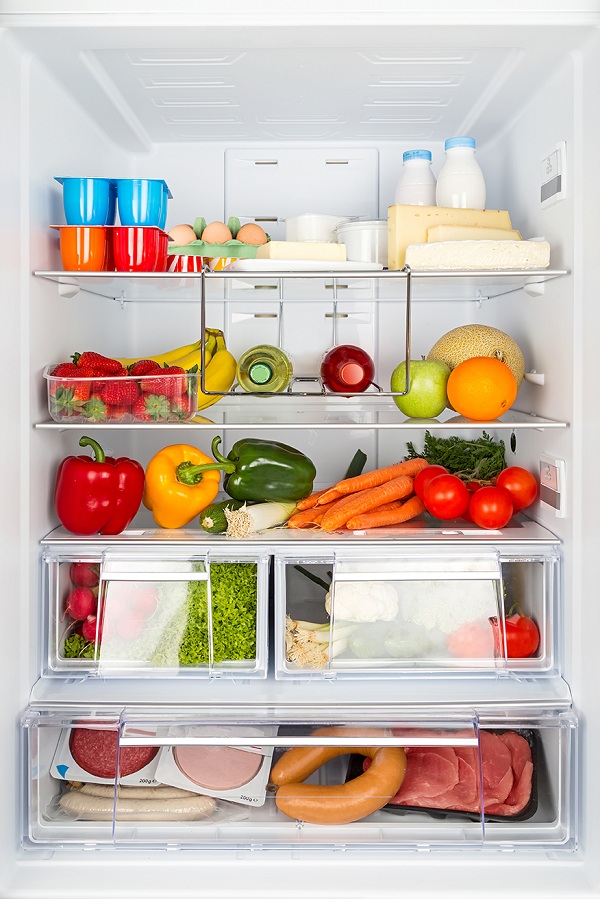Food waste is a growing problem in the UAE. So World Food Day (16th October) provides the perfect opportunity to start reducing the amount of food we throw away. Helpling is on hand to bring you some tips on reducing food wastage in the home. Scroll through the infographic or jump to the tips.
How much food do we waste in the UAE?
In the UAE we love food, but for a nation of food lovers, the amount we waste each year is quite staggering. It is the equivalent of each one of us throwing five bowls of rice in the bin, every single day! That’s a lot of food. 3,270,000 tonnes of it in fact (or 350kg each).
In Abu Dhabi, food makes up 39% of all waste, which adds up to some 400,000 tonnes. And things only get worse during Ramadan – in Dubai, 38% of food is wasted, but this rises to a whopping 55% during Ramadan!
Why is this issue so important? Well, food waste is costing us a lot of money. Each year AED 13 billion worth of food is wasted, the same as AED 1400 per person, which will make you think twice before loading up your plate with more food.
It’s also very harmful to the environment. The carbon footprint of wasted food in the UAE is equivalent to that of around 1,000,000 cars – over a third of the number of cars in the entire country.
The National Environment Agency has estimated that approximately half of all wasted food is produced by households, which fortunately means that we can all do our own small part to make a difference by changing the way we buy, eat and dispose of food. Here is a list of some useful tips and tricks to cut down food waste in the home, which will save money in the long run.
5 ways you can reduce food waste at home
1. Shop smart
Buy less food. Simple, right?
But really, this is one of the most important things you can do. More often than not, some of the food we buy in the supermarket will spoil before it’s eaten and get thrown away. Even if it’s only a small amount each time, it all adds up. Buy a little less food each time you visit the supermarket, even if this means making more trips. Try to avoid getting sucked in by food offers you don’t need. Making a meal plan for the week can help. Then write a shopping list containing only the items you know you will use for those meals.
And the number one classic piece of advice: never go grocery shopping when you’re hungry!
2. Work with what you’ve got
Regularly check use-by dates and make meals using items that are reaching their expiry date. This will help reduce the amount of food you throw out, and the different combinations of ingredients can make for some exciting meals. Check out a site like foodgawker for some inspiration. And remember, if stored correctly, some foods can be safe for a few days after their expiry date.
Staple foods like bread often make up a big portion of wasted food. But bread is such a versatile food: it can be used in soups, cakes, crumbles, meatballs and, of course, bread crumbs for coating meat. It’s also one of the best foods to freeze. You can take one slice out at a time and defrost it in the toaster or oven. Think twice before throwing bread out just because it’s gone slightly past its expiry date.
When you make a big meal, save any excess food. It can be your lunch for the following day, or simply a snack for when you get peckish. You can freeze most food in individual portions in freezer bags, too. This can serve as quick dinners in a few weeks’ time when you can’t face cooking!
3. Store food properly
Proper storage of certain foods can drastically impact their longevity. Of course, the longer you can preserve food, the less you end up throwing away. Have a look at our tips for making fresh fruit and veg last longer, as well as how to get rid of fruit flies that spoil your produce.
You should have a cool and dry cupboard or storage area for any dry, long-life products. Sealable plastic containers, jars with lids, and resealable bags are all ideal for these foods. Choose a container that has adequate space for your produce without allowing too much air inside.
Keep your fridge clean and hygienic, and at the right temperature (ideally around 4 degrees Celsius) and your food will stay fresh for longer. Get into the habit of rotating your foods in the fridge each time you shop. Bring items from the back towards the front, as these will have the soonest use-by-dates. This prevents anything from being left at the back and spreading bacteria if it goes off.
4. Serve sensible portions
When we eat out at restaurants, it’s normal to get too much food. This has begun to affect our meals at home. Avoid over-serving food when cooking for friends and family by serving smaller portions at first, then dishing out any more to those who are still hungry. You might also try serving food on smaller plates – the same amount of food on a smaller plate seems like more food, as it seems to be taking up more space on the plate.
5. Reuse, recycle
Many items that you might just toss in the trash once you’ve used them still have life left in them. Take used coffee grounds for example – there are plenty of inventive ways you can use them before they go in the trash. You can also use old lemons to disinfect surfaces, or even clean the inside of your fridge.
You could try composting. It’s nature’s way of recycling food waste. Much of what you would have otherwise put in the trash can go on a compost heap. Check out this simple how-to guide on composting from Eartheasy.
Still not convinced about how big a problem food waste is in the UAE? Check out our infographic below. If you have any tips you’d like to share, add them to the comments. We’d love to hear how you reduce waste in the home.
And for those that would like to find out more about our quick and easy to use Dubai home cleaning services, you can visit our website here!








